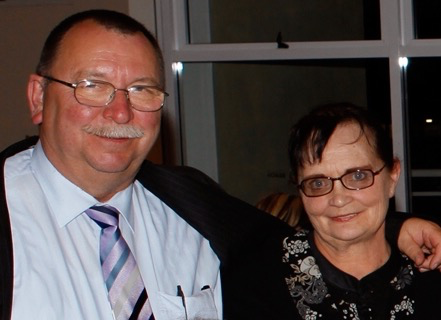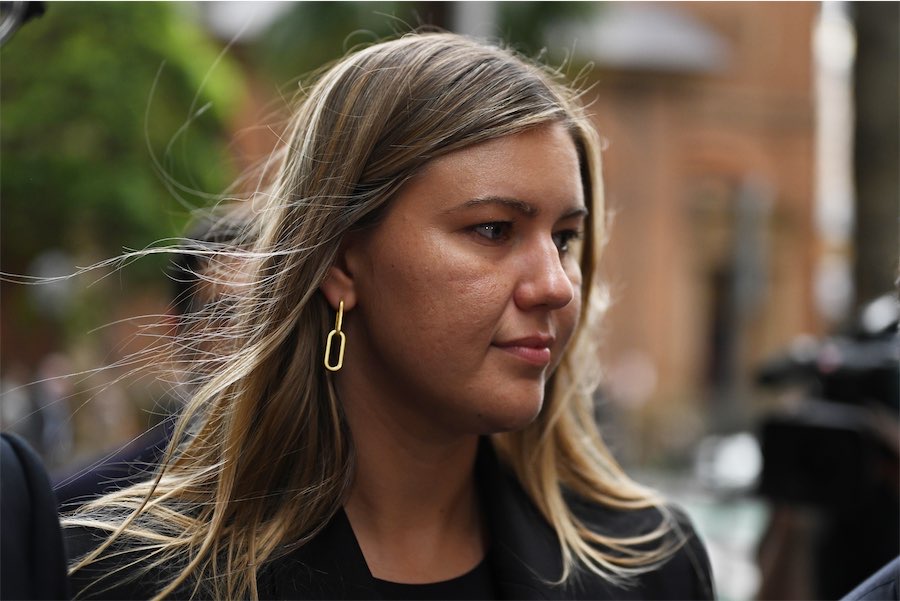
JOHN Paynter met the love of his life and partner of almost 40 years during their university days when they were both studying psychology at Sydney University.
“It was real love at first sight and we never separated,” says John.
They raised four children and played a parenting role in the lives of many other young people who needed their support.
The couple worked together for the majority of their careers that focused on creating computer-based learning. They moved to Belconnen to work as business analysts for the government in 2007, working side by side.
John recalls the huge shock they felt when his wife was diagnosed with stage four cervical cancer four years ago.
He has chronicled her last days before she died in Canberra Hospital in April and what he describes as the “stupid, illogical and cruel” manner of her passing.
John says that his wife was a private person, but the heartbreak and pain that he and his family experienced in seeing her denied all nutrients, antibiotics and left to die over the course of one agonising week has motivated him to share his story to encourage Parliament to support a Private Member’s Bill to allow assisted dying in the ACT.
John writes…
IF I took my pet cat to the vet and it was treated as was my soulmate of almost 40 years, the vet would be charged with cruelty to animals.
Let me begin by stressing that the nursing staff at Canberra Hospital were dedicated and kind. They do all that they can within the confines of their delegations.
My wife had stage four cancer and had many medical issues including a broken hip that was causing her much pain.
She was rushed to the hospital on Easter Sunday with a high temperature. From then until Wednesday several specialist teams were working on a plan to improve her quality of life for whatever time she had left. This involved a series of very painful CT scans.
From Tuesday, March 29, to Thursday, March 31, we told the doctors that she was acting very strange, forgetting things and sleeping with her eyes open.
They put it down to the pain medication and her various infections. On the last scan, where she was making sense, a clerical error meant that she did not receive pain medication before the scan. The last thing she said to me with tearful, wide blue eyes was: “I’m scared”. I will never be able to get over that.
All the scans and all the pain were in vain since a later brain scan revealed that she had suffered a massive stroke (probably starting Easter Sunday) and on the morning of Friday, April 1, I was told that it was too late to do anything about the stroke and that she was dying.
I and other family members were told there was little chance of saving her and that surgery would likely be fatal. I begged them to perform the surgery since if she died on the operating table, under general anaesthetic, it would be a peaceful death. But they refused stating that they could “do no harm”. They said they would keep her comfortable and she would probably be gone in 12 to 24 hours.
I had no idea what palliative care involved. They removed anything that would help her stay alive, including saline drips and antibiotics.
One staff member told me that she would virtually die of thirst and that it could take several days or even weeks. She was given a steady infusion of morphine, a sedative a few times a day and a drug to help dry out her throat.
Days one to four
For the first few days she was constantly gurgling and coughing in an attempt to clear her throat. She appeared terrified.
After much complaining on my part they finally included the sedative in her continuous feed and allowed “breakthrough” sedation and pain medication once an hour instead of a longer period earlier.
It was horrible to watch her with her face scrunched up in pain and trying to breathe through liquid and desperately trying to cough – but she was just too weak. I begged too much for her to be euthanised to the point where the palliative “care” nurse suggested the nurses did not trust my judgment and thought that I might “do her harm” with a morphine overdose. The complete lack of any logic is in itself unbelievable.
Day five
Still groaning and trying to cough, sometimes almost screaming. I asked the palliative “care” nurse who was very sympathetic and doing what she could to stay and watch her. After a few minutes she went and spoke with the palliative “care” senior doctor.
They tripled her dosage of sedation and pain medication – too little too late. I was told by the nursing staff in an attempt to be kind but in actual fact was horrific that “hearing is the last thing to go” and “she will recognise your voice”.
At the same time being urged to go home and get some sleep. I told my family and the nursing staff that I would not leave her side. “I’m not leaving my wingman,” I said.
She seemed to recognise me when I came in after a breakfast break. She started moaning and I stroked her head and spoke to her trying not to cry. I started reading to her from her beloved Kindle and she seemed to sleep.
Day six
She was getting weaker and sometimes just couldn’t get a breath. Fighting for life, not knowing she had no chance, was so incredibly cruel. She fought the whole day.
When I asked for more relief to stop her needing to cough up the liquid at about midnight I was told: “We can only give that three times a day and she had some an hour ago”.
My god! Were they afraid it might make her sick? I felt I was living in a Stephen King horror novel.
Day seven
She finally got so weak that she stopped trying to cough and just breathed more and more shallowly. I was alone with her, my head on her pillow and holding her hand when I noticed the breathing had stopped. At last, the poor thing had some peace – after seven days of unnecessary and unbelievable cruelty.
Religion
My wife was an atheist and as such deserved the same right to her belief as any Christian, Buddhist, Muslim or any other religion.
However, I was told by one of the staff that “only God can take a life”. This is despite the fact, as the member for Fraser Andrew Leigh told the House of Representatives in August, that: “Three out of four Catholics, four out of five Anglicans and over nine out of 10 Australians with no religion say they, in principle, support voluntary euthanasia”.
Who can be trusted?
In a world of spin and confusion, there’s never been a more important time to support independent journalism in Canberra.
If you trust our work online and want to enforce the power of independent voices, I invite you to make a small contribution.
Every dollar of support is invested back into our journalism to help keep citynews.com.au strong and free.
Thank you,
Ian Meikle, editor




Leave a Reply